Tattoos are a form of self-expression that has become increasingly popular in recent times. Whether it’s a small image or large scale piece art, people use tattoos to communicate their values and beliefs. However, before taking the plunge into tattooing one’s body, it is important to consider the health risks associated with this procedure. While die-hard fans may have heard rumors about ink poisoning or even dying from a tattoo, how accurate is this information really? We take a look at what you need to know so you can make an informed decision when considering if getting inked is right for you.
What is a Tattoo?
A tattoo is a form of body art that involves inserting a pigmented needle into the skin to create an image or design. Tattoos can be used to symbolize an event in someone’s life, honor a loved one, express an opinion or simply decorate the body.
Tattooing has been practiced for centuries and evidence of it dates back to ancient cultures around the world. Today, tattoos are popular among all age groups and many people have multiple tattoos on their bodies.
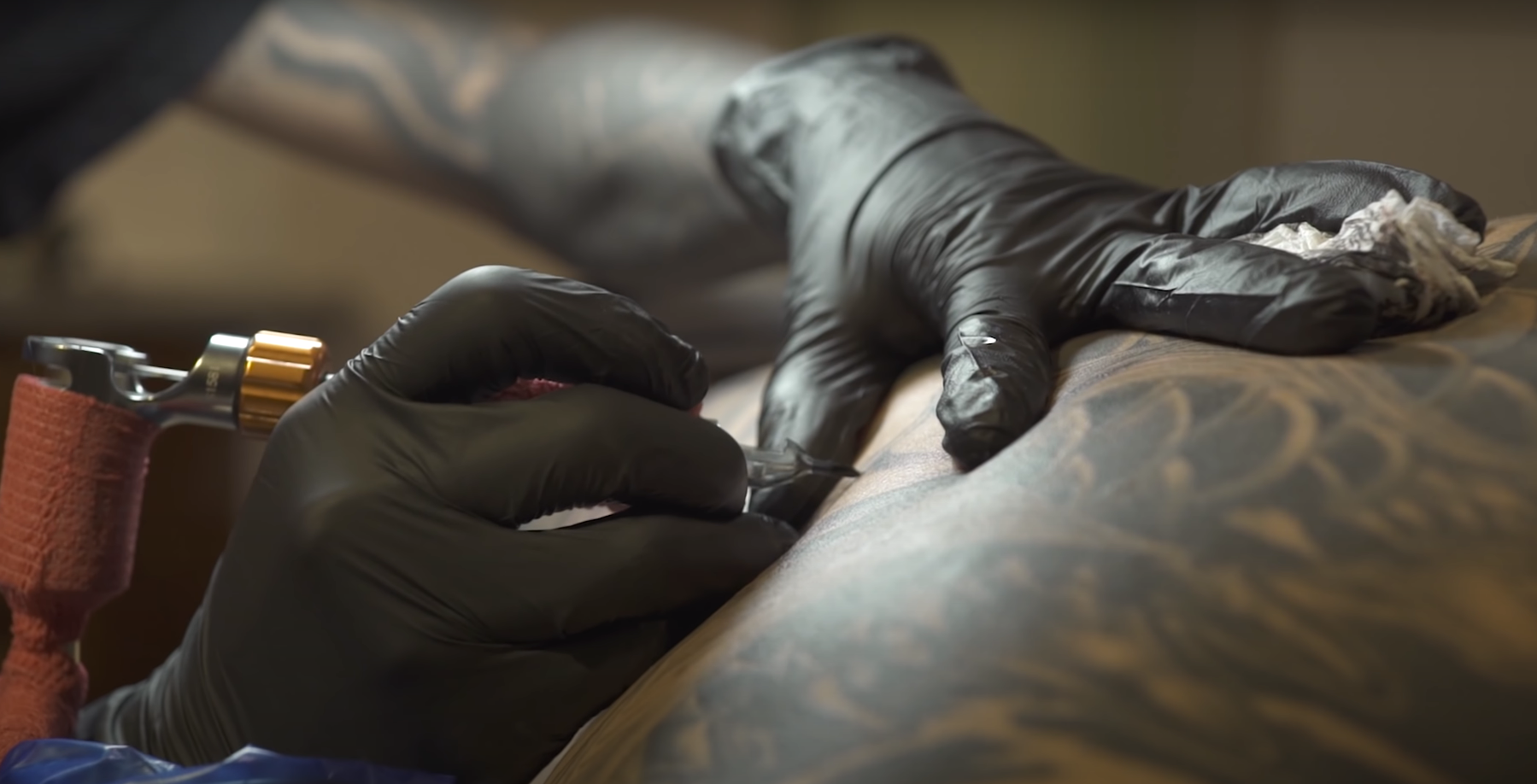
Risks of Getting A Tattoo
A. Infection
The most common risk associated with getting a tattoo is infection. Tattoo ink is injected directly into the skin, and it can carry bacteria and viruses that can cause infections like HIV and hepatitis if not handled properly. Tattoo artists should use new needles and proper sterilization techniques to reduce this risk.
B. Allergic Reactions
There are also risks of developing allergic reactions to the ink or dyes used in a tattoo. Symptoms of an allergic reaction may include redness, itching, rashes, swelling, or bumps around the tattooed area. If you experience any of these symptoms after getting a tattoo, seek medical attention immediately.
C. Scarring
Scarring is another possible side effect of getting a tattoo. Scarring can occur if the tattoo artist uses too much pressure or the wrong type of needle, which can cause permanent damage to the skin. It is important to choose an experienced and reputable artist to reduce this risk.
C. Blood Borne Pathogens (BBP)
Another risk associated with getting a tattoo is the possibility of coming into contact with blood borne pathogens (BBP). BBP are microorganisms that can cause serious illness and even death if not handled properly. It is important to ensure that all tools used in the process of giving a tattoo are properly sterilized after each use, and that all equipment used is single-use only.
D. Toxin-Related Health Issue
Finally, tattoos may contain toxic metals and compounds that can cause health issues. The long-term effects of these substances are still unknown, so it is important to carefully research the ingredients used in tattoo inks before getting a tattoo. [1]
In conclusion, there are risks associated with getting a tattoo. It is important to take precautions such as doing your research beforehand, making sure the artist is properly trained and certified, and ensuring all equipment is properly sterilized after each use. Additionally, if any unusual symptoms occur after getting a tattoo, seek medical attention immediately.
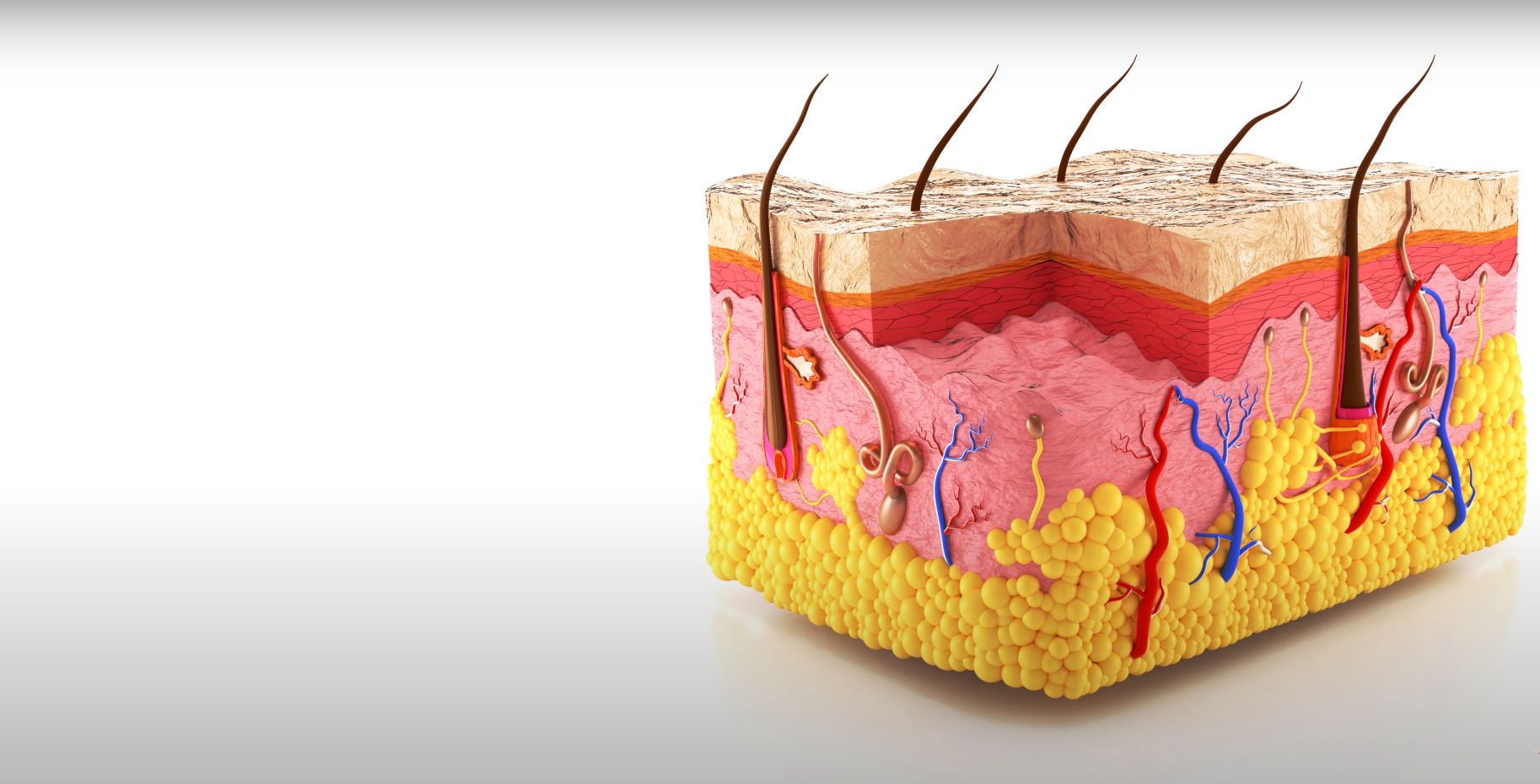
Can You Die From a Tattoo?
A. Serious Complications from Poor Hygiene Practices and Equipment
Tattoos are not entirely risk-free. They can potentially lead to serious health risks, particularly if proper hygiene and safety practices and equipment are not adhered to. Poorly sterilized equipment, such as needles, inkpots or other tools used during tattooing, may have been exposed to harmful bacteria that can be transferred to your skin through the needle punctures. This could result in a serious infection that can cause severe pain and itching around the tattoo area as well as fever, chills or fatigue. In rare cases these infections can even become life-threatening if left untreated. It is important to research the tattoo parlor you plan on using beforehand to make sure all of their sanitary precautions meet local standards and regulations in order to minimize the risk of contracting an infection.
B. Allergic Reactions
Another potential complication that can arise from tattooing is an allergic reaction. Depending on the type of ink used, some individuals may have a reaction due to the ingredients in the pigment and suffer inflammation or other skin reactions such as rashes, hives or blistering. In rare cases this can even lead to anaphylactic shock, which can be potentially life-threatening if not treated quickly and properly. If you are considering getting a tattoo, it is important to always check with your artist about what type of pigments they use and do a patch test beforehand to make sure your body will not have an adverse reaction.
B. Danger from Unregulated Inks or Products Used During the Process
In some cases, individuals may experience adverse effects due to the use of unregulated inks or products used during the tattooing process. These can include things such as lead, cadmium, cobalt and nickel, which are often found in pigments that are not regulated by professional organizations. In rare cases, these metals can be toxic when injected into your body and can cause a range of health issues from organ damage to infertility. It is important to check with your artist beforehand on what type of ink they use and always make sure it meets industry standards for safety and quality.
C. Possible Transmission of Infectious Diseases
Tattooing can also pose a risk of transmitting infectious diseases such as hepatitis B, hepatitis C, HIV/AIDS and even tuberculosis. The transmission of these diseases may occur if the needles or other instruments used in tattooing are not sterilized properly. Proper sterilization is extremely important to reduce the risk of contracting an infection from a tattoo. Additionally, it’s advisable to research and verify the practices of any potential tattoo artists before getting a tattoo to ensure that they use sterile equipment and dispose of it properly. [2]
D. Chances of Developing Skin Cancer
It is possible to develop skin cancer after getting a tattoo, although it is very rare. This is because of the ultraviolet light used in the process of coloring the tattoo. UV light can cause damage to the skin cells which can lead to skin cancer. It’s important to wear SPF sunscreen and protective clothing on any areas with tattoos when exposed to direct sunlight for prolonged periods of time.
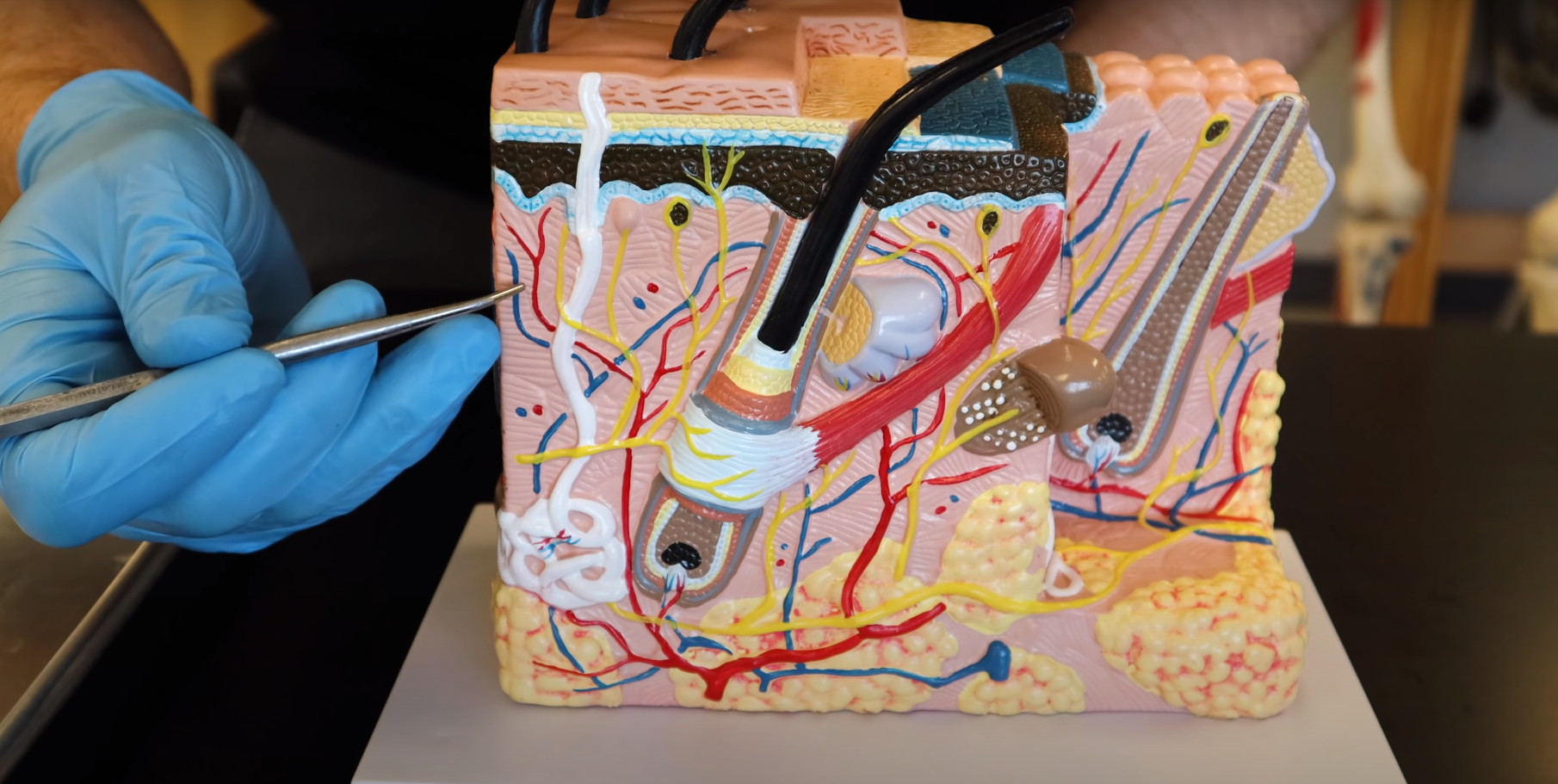
How to Choose a Tattoo Artist and Studio Safely?
When considering getting a tattoo, you should always choose an experienced and reputable artist and studio. Request to see the artist’s portfolio so that you can make sure their work meets your expectations. Ensure the studio is certified by a health agency or licensed by your local government and ask about its sterilization procedures.
Finally, consider opting for a less permanent option such as henna tattoos if you are still not sure about investing in a permanent piece of body art.
By taking these precautions before having a tattoo, you can greatly reduce your risk of infection or other health complications. If in doubt, seek medical advice before getting a tattoo to make sure it is safe for you.
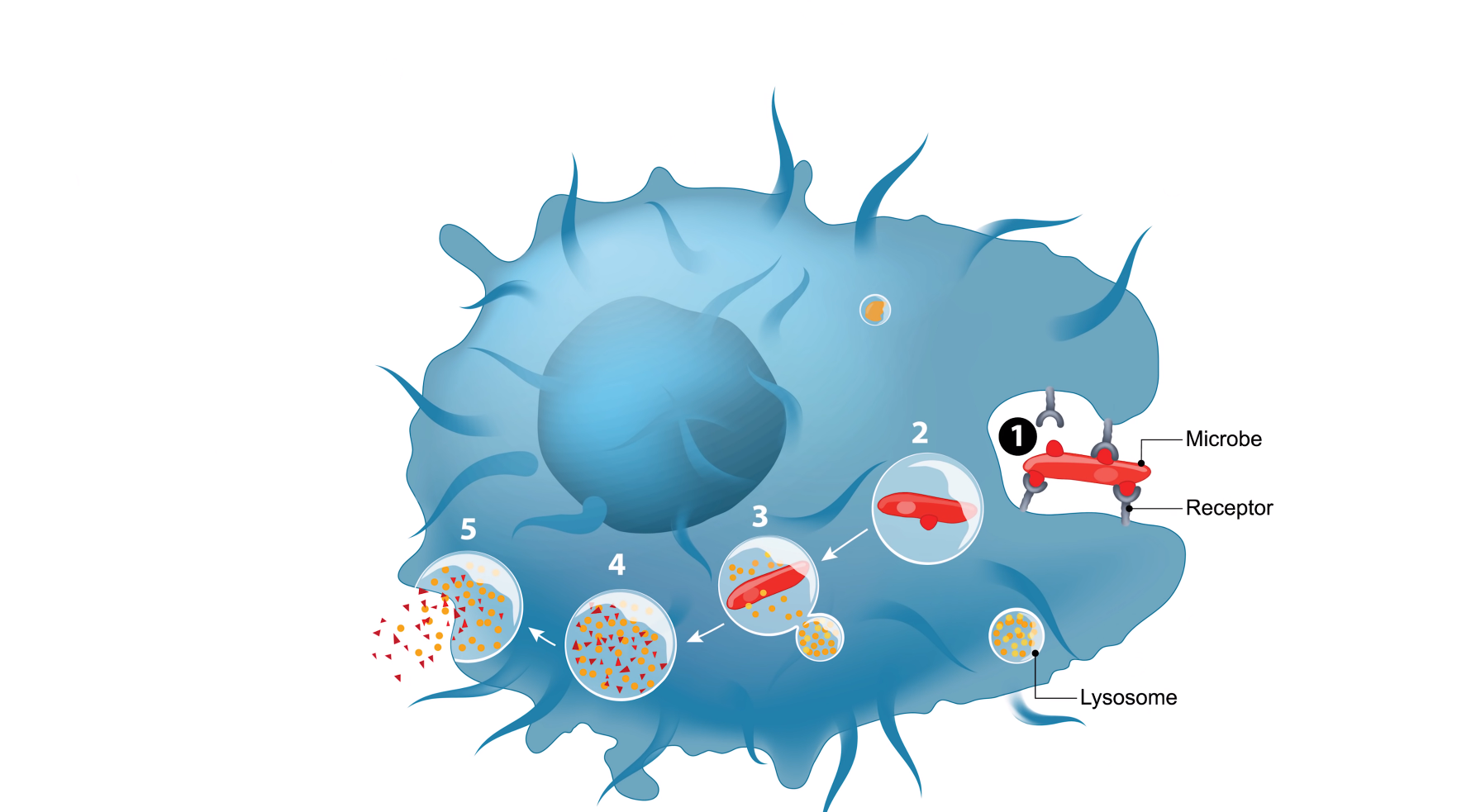
Tips for Reducing the Risk of Illness or Injury From Getting a Tattoo
- Make sure the studio is clean: The most important thing you can do to protect yourself from illness or injury when getting a tattoo is to make sure the studio and all of its equipment are properly sterilized and clean. Check that needles, razors, and other tools are thrown away after each use. Be aware of how the studio handles waste disposal too – it should be done in accordance with local regulations. [3]
- Wear gloves: Ask if your artist wears gloves when giving tattoos and if not, wear your own disposable pair. This will help reduce your risk of exposure to any infectious diseases such as HIV or hepatitis B & C which can be spread through direct contact with contaminated blood or body fluids.
- Ask questions about the ink: The pigments used in tattoo inks can contain a variety of substances that may be hazardous to your health. Ask your artist about what type of ink they use and make sure it is non-toxic, high quality pigment from a reputable supplier.
- Don’t forget to look after yourself: Although getting a tattoo should not put your life at risk, taking care of yourself afterwards is essential for reducing the possibility of infection or irritation. Make sure you follow all the instructions provided by your tattoo artist and keep the area clean and moisturized until it has healed completely. Avoid swimming or soaking in hot tubs during this time too as these activities can expose your fresh tattoo to bacteria.
By following these tips, you can help ensure that your experience with body art is a safe and enjoyable one. Remember, tattoos are meant to be something that brings joy – so make sure your safety comes first when getting inked!

Signs That a Tattoo Parlor Might Not Be Hygienic or Have Quality Equipment
Getting a tattoo is an exciting experience, but it’s important to make sure the parlor you choose is safe and hygienic. If the parlor does not take proper safety precautions, you may be at risk of serious health issues such as infections or even death from contaminated equipment. Here are some signs that the tattoo parlor might not have quality equipment or follow proper hygiene protocols:
- Unsterilized Needles: Before getting a tattoo, make sure that the needles being used are sterile and have never been used before on another customer. Ask to see them still sealed in their packaging before they are opened and ask questions about how often they are replaced. [4]
- Poor Hygiene Practices: Look around the studio to make sure it is clean and that employees are washing their hands between customers. It’s also important to make sure they wear gloves when dealing with your skin.
- Subpar Equipment: Check to see if the equipment looks new or well-maintained. If it appears outdated or in poor condition, consider finding another parlor.
Tattoos can be a great way to express yourself, but it’s important to make sure you are going to a safe place before getting one done. Following these tips will help ensure that you don’t put yourself at risk of infection or even death from contaminated equipment. Taking a few minutes to do some research beforehand could save you from a painful experience later on! [5]
FAQ
Are tattoos bad for your blood?
Tattoos are generally considered to be safe, but the process does involve piercing the skin and introducing pigment into the body. As a result, some people may experience an adverse reaction due to blood-borne diseases. It is important to ensure that your tattoo artist follows stringent sterilization practices and takes proper precautions in order to help prevent infections or other medical complications. Additionally, people with certain medical conditions such as diabetes should speak with their doctor prior to getting a tattoo.
Can you die from a tattoo?
No, it is highly unlikely that someone could die directly from a tattoo procedure. That said, improper aftercare of a new tattoo can lead to serious infections which can potentially be fatal if left untreated. Therefore, it is essential to follow the instructions of your tattoo artist and take good care of your new ink.
What are the risks involved with tattoos?
The risk of infection is one of the biggest concerns when it comes to getting a tattoo. Other potential complications include allergic reactions, scarring, and swelling. It’s important to be aware that these issues can occur even if all proper sterilization practices have been followed. If you experience any signs or symptoms of an infection, contact your doctor immediately for treatment.
Are there any long-term side effects from getting tattoos?
In some cases, people may experience keloid formation which is an overgrowth of tissue around the site where their tattoo was placed. Additionally, certain colors used in tattoos (such as red and yellow) may fade over time. Finally, some people have reported skin irritation or itching due to the presence of the pigments in their skin.
When should you not get a tattoo?
Although tattoos can be a form of self-expression, they come with certain risks. People with diabetes or a weakened immune system should not get tattoos as these conditions increase the risk of complications from skin infections and wounds. Tattoos on the feet, face, hands and genitals also require special attention to avoid infection. Furthermore, pregnant women should wait until after giving birth to get a tattoo due to potential health risks for both mother and child associated with tattooing at this time. Additionally, people who are taking certain medications that interfere with their healing process (such as blood thinners) should refrain from getting tattoos or consult a doctor beforehand. Finally, it is important to remember that although rare, some people may suffer an allergic reaction to the pigments used in tattooing, so it’s best to get a patch test first. In short, if you are pregnant, have a weakened immune system or diabetes, take certain medications that interfere with your healing process, or may be allergic to the pigments in tattoos – it is not recommended to get a tattoo. It is better to wait until these conditions improve before making any decisions about getting a tattoo.
Can you get a blood clot from a tattoo?
The answer is yes, it is possible to get a blood clot from a tattoo. Blood clots can occur when the body overreacts to the trauma of getting a tattoo and triggers an inflammatory response. This can lead to swelling, pain, and even blood clots in extreme cases. To reduce the risk of developing a blood clot after getting inked, it’s important to ensure proper hygiene during the procedure and follow any aftercare instructions given by your artist. Additionally, people who are already at higher risk for developing blood clots should consult their doctor before getting a tattoo as this may increase their risks further.
Useful Video: What Tattoos Do to the Skin
Conclusion
In conclusion, while it is possible to die from a tattoo, the chances are incredibly slim. The most likely dangers that come with tattoos are infections or allergic reactions. It’s important to research your tattoo artist and the ingredients they use in their dyes before getting a tattoo, and it’s equally as important to take care of your tattoo properly by following aftercare instructions. If you’re ever worried about any pain or discomfort during or after the tattoo process, contact a medical professional for advice. With proper precautions in place, you can get a safe and memorable tattoo experience.
References:
- https://uhs.umich.edu/bodyart
- https://authoritytattoo.com/can-you-die-from-getting-a-tattoo/
- https://www.pastemagazine.com/health/tattoo/the-day-has-finally-come-you
- https://www.bustle.com/articles/101802-the-6-worst-things-to-happen-at-a-tattoo-parlor-are-seriously-scary
- https://www.mayoclinic.org/healthy-lifestyle/adult-health/in-depth/tattoos-and-piercings/art-20045067





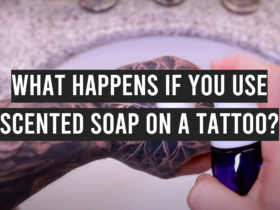
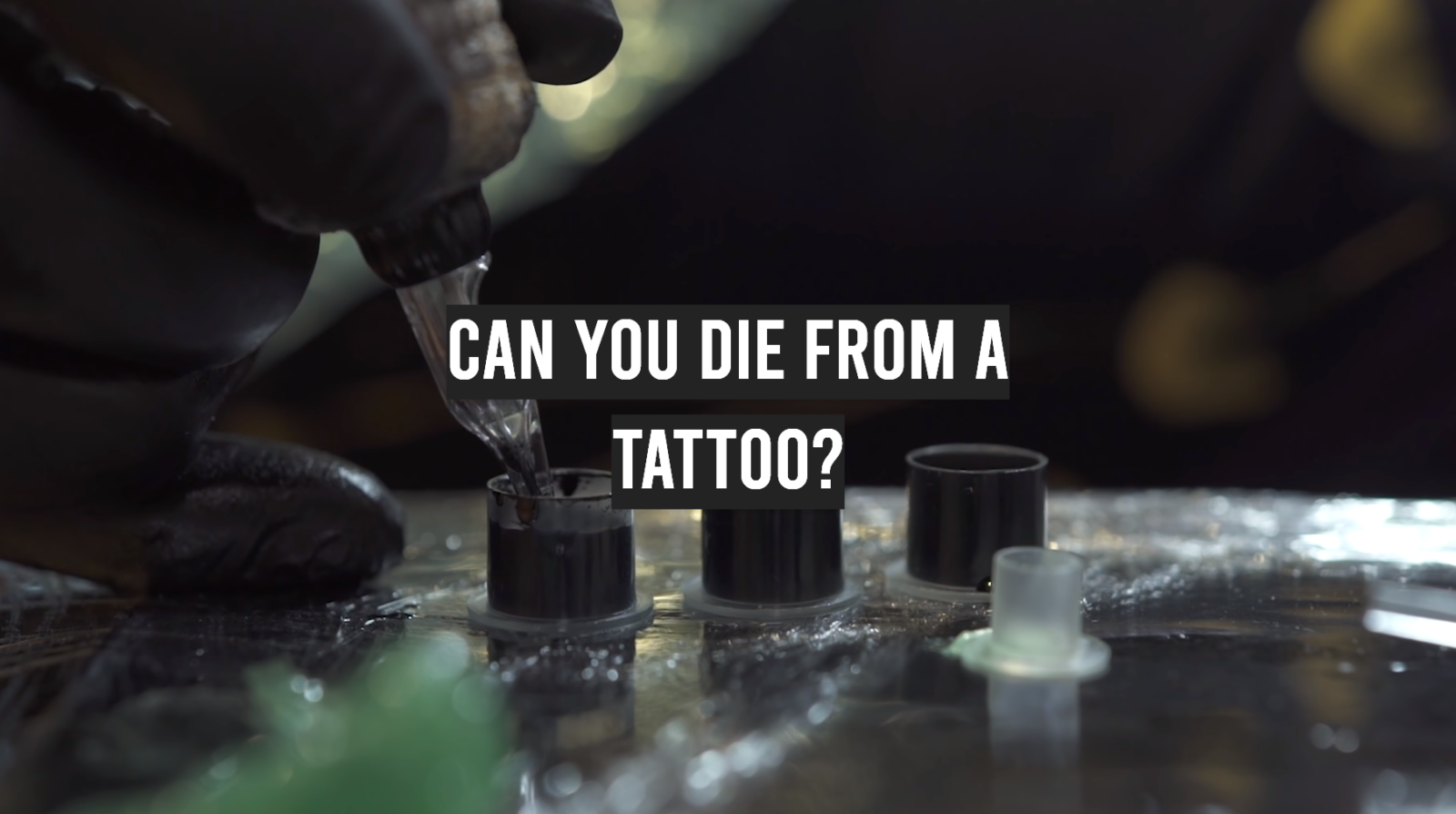
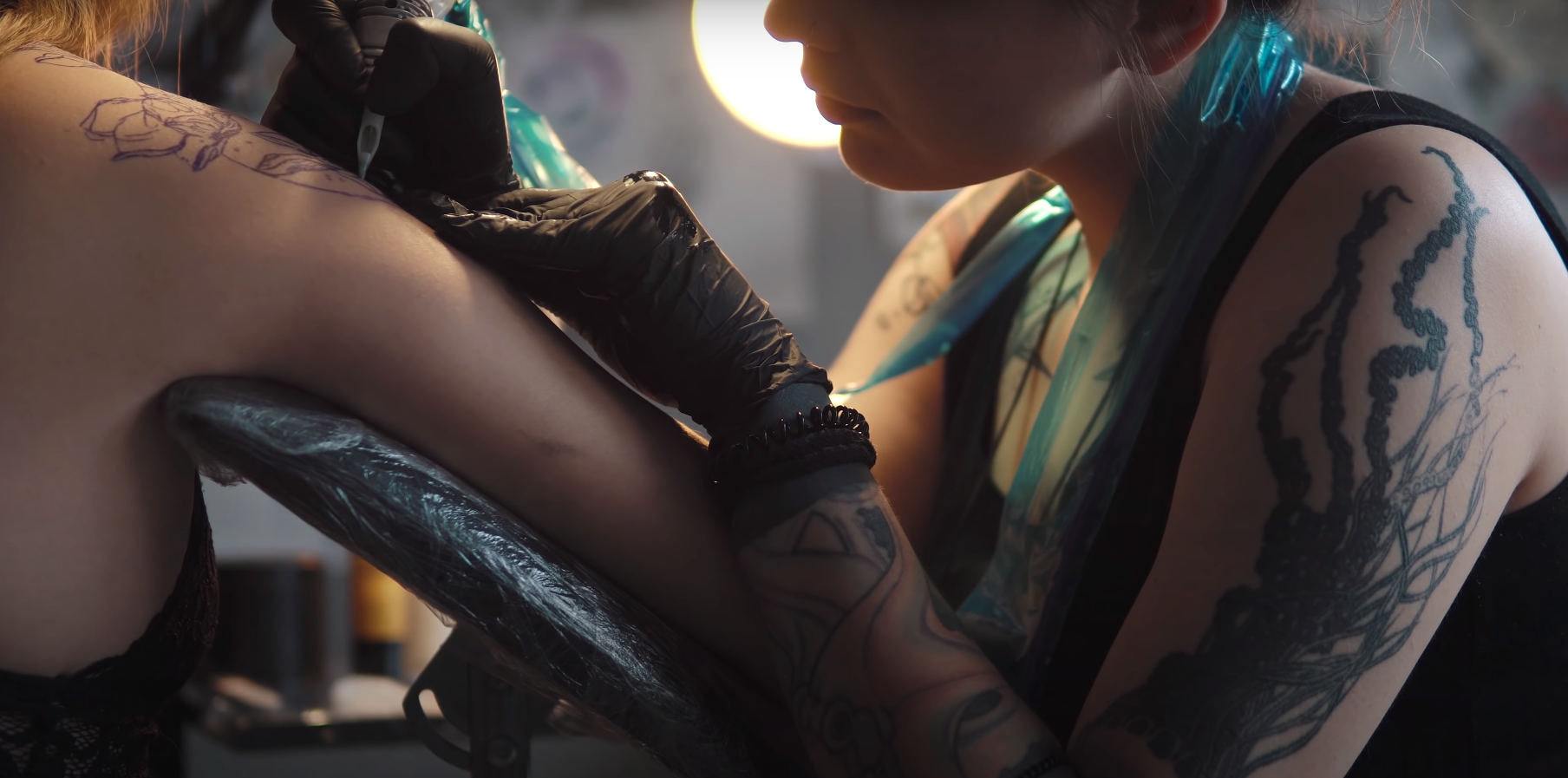

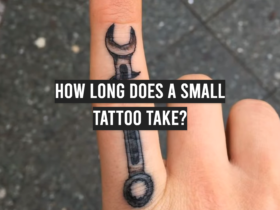


Leave a Review